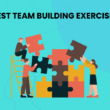Table of Contents Show
Effective task management skills are essential for achieving success in both personal and professional life for project managers.
These skills encompass a range of abilities that help individuals and teams manage tasks efficiently, ensuring that projects are completed on time and within budget.
In this article, we will explore what task management is, its importance, key skills required, examples in action, ways to improve these skills, and the tools available to enhance task management processes.
What is Task Management?
Task management refers to the process of managing a task through its life cycle, from planning and execution to monitoring and completion. It involves various activities such as defining tasks, setting deadlines, assigning responsibilities, and tracking progress.
Effective task management is crucial for project success as it ensures that resources are utilized optimally and that team members are aligned toward common goals.
Components of Task Management
Let us look at the components of task management:
- Task Definition: Clearly outline what needs to be accomplished.
- Task Assignment: Delegating responsibilities based on team members’ strengths.
- Time Allocation: Estimating how long tasks will take and scheduling them accordingly.
- Monitoring Progress: Keeping track of task completion and making adjustments as necessary.
Importance of Task Management Skills
The ability to manage tasks effectively is vital for enhancing productivity and achieving desired outcomes. Here’s why these skills matter:
- Increased Productivity: Efficient task management helps individuals focus on high-priority tasks, minimizing distractions.
- Enhanced Team Dynamics: Clear communication and delegation foster collaboration and accountability within teams.
- Successful Project Outcomes: Properly managed tasks lead to projects being completed on time and within budget, which is crucial for organizational success.
Key Task Management Skills
1. Planning
Planning is the foundation of effective task management. It involves breaking down larger projects into manageable tasks, estimating time requirements, setting dependencies, and defining clear goals.
Example: A project manager planning a marketing campaign might outline specific tasks such as market research, content creation, and social media scheduling, assigning deadlines for each.
2. Prioritization
Prioritization is the ability to rank tasks based on urgency and importance. This skill ensures that critical activities are addressed first.
Example: Using the Eisenhower Matrix, a project manager can categorize tasks into four quadrants to determine which tasks require immediate attention versus those that can be scheduled for later.
3. Delegation
Effective delegation involves assigning tasks to team members based on their skills and availability. This not only empowers team members but also optimizes overall productivity.
Example: In a software development team, a lead developer may delegate coding tasks based on individual team members’ strengths in specific programming languages.
4. Time Management
Time management encompasses setting realistic deadlines and allocating sufficient time for each task to prevent overcommitment.
Example: A marketing manager might use time-blocking techniques to allocate specific hours for email campaigns, meetings, and administrative work throughout the week.
5. Organization

Being organized means systematically arranging tasks, information, and resources to enhance productivity.
Example: Utilizing digital tools like Kanban boards allows teams to visualize workflows by categorizing tasks into “to-do,” “in progress,” and “done.”
6. Communication
Communication is not just about sharing information; it also involves active listening and ensuring clarity in messages exchanged among team members. Good communication practices help prevent misunderstandings that could derail projects.
Example: During team meetings, a project leader encourages open dialogue by asking questions and soliciting feedback from all members. This inclusive approach fosters collaboration and ensures everyone is aligned on objectives.
7. Problem-Solving
The ability to identify obstacles and develop solutions is crucial for overcoming challenges in task management.
Example: If a project falls behind schedule due to unforeseen circumstances, a project manager must quickly assess the situation and reallocate resources or adjust timelines accordingly.
8. Adaptability
Adaptability is the capacity to adjust plans and approaches based on changing circumstances or new information. This skill is increasingly important in fast-paced work environments where priorities can shift rapidly.
Example: If market research reveals a new trend that requires immediate attention, a product manager may need to pivot their current project focus. An adaptable leader can reassign resources and adjust timelines to capitalize on this new opportunity without causing significant disruption.
9. Monitoring Progress
Tracking the progress of tasks ensures that they are completed on time. This involves regular check-ins with team members and utilizing tools for status updates.
Example: Using Gantt charts allows project managers to visualize timelines and dependencies between tasks effectively.
10. Setting Reminder
Setting reminders helps individuals stay on top of their tasks by prompting them about upcoming deadlines or important milestones. This skill ensures that nothing falls through the cracks due to forgetfulness or oversight.
Example: A project manager might set reminders for weekly check-ins with team members or deadlines for project phases using calendar alerts or task management software notifications.
11. Observation and Analysis
Observation and analysis involve closely monitoring tasks and team dynamics to gather insights that inform decision-making. This skill helps managers identify strengths and weaknesses within their teams, enabling them to optimize task assignments and improve overall performance.
Example: A project manager may notice that a particular team member consistently excels in data analysis but struggles with presentation tasks. By observing these patterns, the manager can delegate analysis tasks to this individual while assigning presentation duties to someone with stronger communication skills.
12. Scheduling

Scheduling is the ability to create a structured timeline for tasks, define the order of operations, and ensure that resources are allocated effectively. This skill is vital for maintaining momentum in projects and meeting deadlines.
Example: A marketing team planning a product launch might create a detailed schedule that includes milestones for content creation, social media campaigns, and press releases. By mapping out these tasks on a timeline, the team can ensure that each element is completed in the right order and on time.
13. Accountability
Accountability is the willingness to take responsibility for one’s actions and decisions regarding task management. This skill fosters a culture of ownership within teams, encouraging individuals to meet their commitments and deadlines.
Example: In a software development project, team members might be required to provide weekly updates on their progress. By holding each other accountable for their tasks, the team can ensure that everyone stays on track and any potential issues are addressed promptly.
14. Attention to Detail
Attention to detail involves ensuring that all aspects of tasks are completed accurately and thoroughly. This skill helps prevent errors that can lead to costly mistakes or project delays.
Example: In financial reporting, an accountant must meticulously check figures against source documents to ensure accuracy before submission. A strong attention to detail can save time in revisions later on.
15. Technology Proficiency
In today’s digital age, proficiency with technology tools is vital for effective task management. Familiarity with task management software enhances organization and tracking capabilities.
Example: A project manager using tools like ClickUp or ProjectManager.com can create visual boards that track task progress in real-time, making it easier for the entire team to stay informed about deadlines and responsibilities.
How to Improve Task Management Skills?
Improving your task management skills involves continuous learning and practice. Here are some practical tips:
- Start with Smaller Tasks: Begin by tackling smaller tasks to build momentum.
- Focus on One Task at a Time: Minimize distractions by concentrating on completing one task before moving on to the next.
- Use Task Management Tools: Leverage software like Trello or Asana to organize tasks visually.
- Set Clear Goals: Define specific objectives for each task to maintain focus.
- Seek Feedback: Regularly ask for input from colleagues or mentors on your task management approach.
- Participate in Training Programs: Engage in workshops or online courses focused on enhancing task management skills.
Task Management Tools and Software
Utilizing appropriate tools can significantly enhance your ability to manage tasks effectively. Here’s an overview of popular options:
| Tool | Features | Best For |
| Trello | Kanban boards for visual task tracking | Visual learners |
| Asana | Project timelines with dependencies | Complex project management |
| ClickUp | Customizable workflows with multiple views | Teams needing flexibility |
| Wrike | Real-time collaboration features | Remote teams |
| Microsoft To Do | Simple checklists with reminders | Personal task organization |
Conclusion
Mastering task management skills is crucial for anyone looking to excel in their professional life or personal projects. By understanding what task management entails, and recognizing its importance, developing key skills can significantly enhance their productivity and achieve their goals more effectively.
As you embark on improving your task management capabilities or leading a team toward success, remember that practice makes perfect. Embrace continuous learning opportunities and leverage technology to streamline your processes further. The journey towards mastering these skills will not only benefit you but also contribute positively to your team’s dynamics and overall project outcomes.
More Resources For You:
- 12 Best OKR Software For Succesful Goal Management
- Best Simple Project Management Software
- 21 Best Online Notepad For Ultimate Productivity










